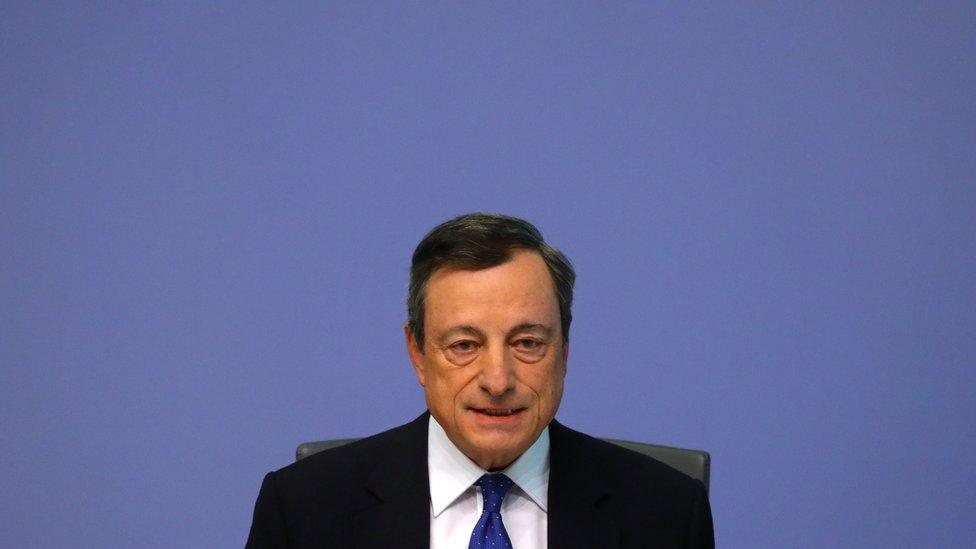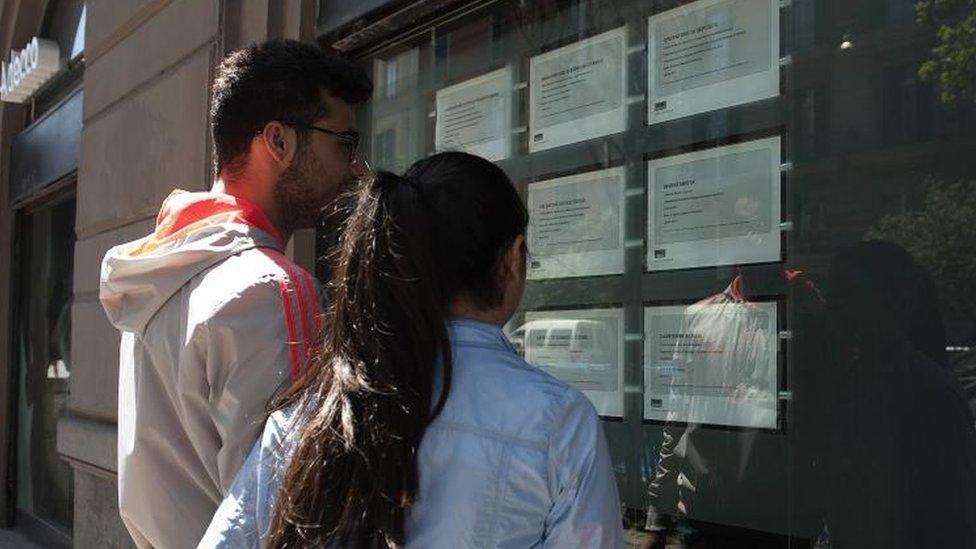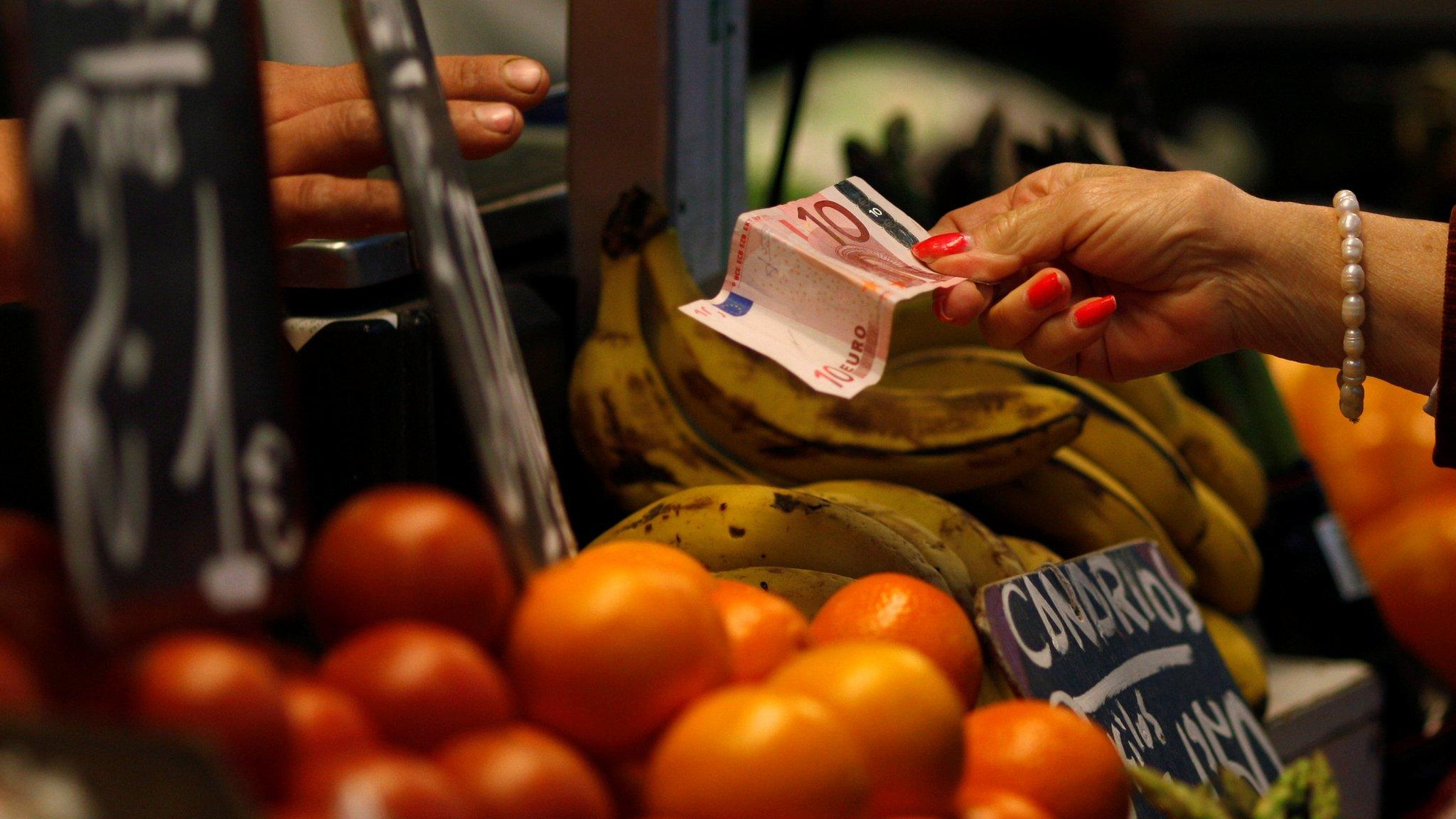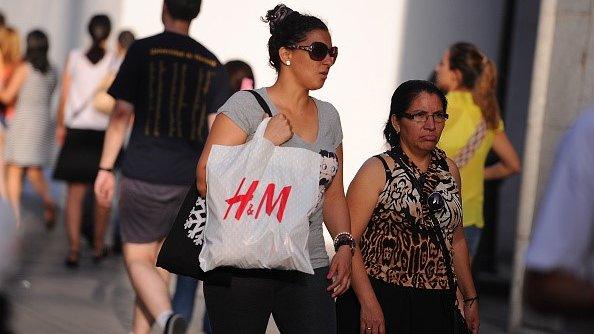Eurozone recovery gathering pace, says Draghi
- Published

European Central Bank (ECB) head Mario Draghi has said the eurozone's economic recovery is "increasingly solid" and faces fewer risks.
But he added that inflation in the 19-nation bloc was still not high enough to raise interest rates.
The ECB has kept its main interest rate on hold at zero for another month.
It also decided not to change the ECB's bond-buying stimulus scheme, which is already being trimmed to 60bn euros (£51bn) a month from 80bn euros.
Economic confidence is at its highest since the eurozone debt crisis, but inflation continues to miss the ECB's target for a fifth straight year.
'Subdued'
Mr Draghi said the recovery was helped by higher consumer spending, wage growth and a global economic rebound.
But inflationary pressures also "remain subdued", with prices largely only going up earlier this year because of higher energy costs, he said.
He also sounded a note of caution about growth. "The risks surrounding the euro area growth outlook, while moving toward a more balanced configuration, are still tilted to the downside," he said.
The ECB cut its main interest rate to zero last year to try to stimulate economic growth and avoid deflation or falling prices.
As well as the rates decision, the bank said it would continue buying 60bn euros of bonds a month "until the end of December 2017, or beyond, if necessary".
'Here to stay'
Analysts were watching for any hints that the bond-buying programme, known as quantitative easing (QE), would be reduced.
Paul Sirani, an analyst at Xtrade, said: "Put simply, it seems that Draghi is reluctant to reveal his hand amidst unsatisfactory, yet improving, economic and political conditions."
Ranko Berich, of Monex Europe, said: "Barring a wholesale change in opinion among the governing council against Draghi's position, ECB QE is here to stay for now."
The euro fell about 0.5% against the dollar to below $1.09, having briefly swung higher on Mr Draghi's comments about a firming recovery.
Economic growth has picked up in recent months, with employment rising and economic sentiment hitting a 10-year high this month.
Inflation, though, slipped back to 1.5% in March after briefly going above the ECB's target in February for the first time in four years.
- Published3 April 2017

- Published31 March 2017

- Published9 March 2017
